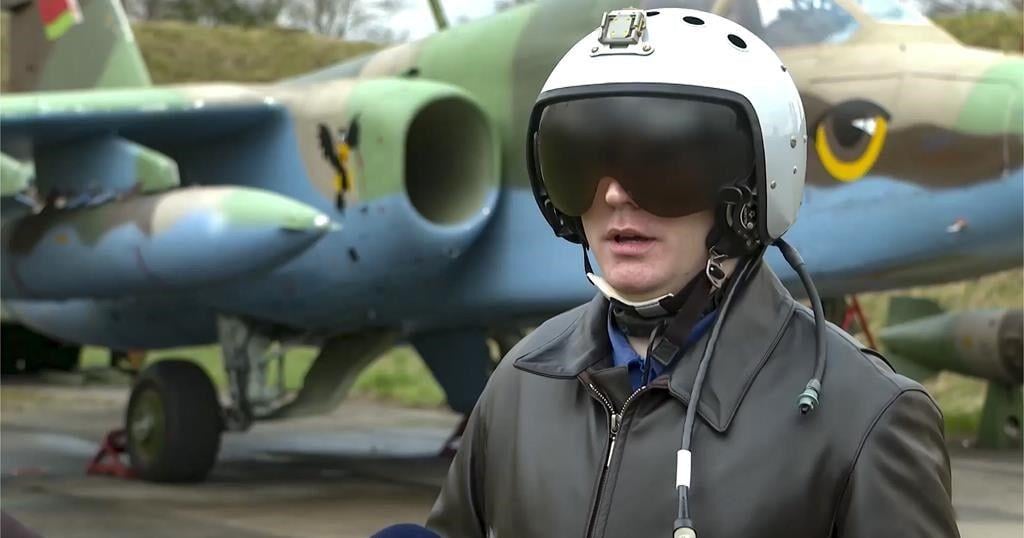Key events in the 30-year rule of Belarus’ hard-line President Alexander Lukashenko:
July 20, 1994 — Lukashenko is inaugurated as president after a landslide victory in what international observers say was the post-Soviet country’s first and only genuinely free election. He previously headed the parliament’s anti-corruption committee and was director of a state farm.
1995 — A referendum is held on replacing the national flag with one closely resembling one that Belarus used as a Soviet republic. It also returns the Soviet-era coat of arms, establishes Russian as the state language on par with Belarusian and gives the president authority to dissolve parliament.
1996 — Alarmed by Lukashenko’s increasingly authoritarian turn, thousands of protesters fill the streets in what became known as the “Minsk Spring.” The human rights center Viasna (Spring) is formed. Lawmakers gather enough signatures to petition for impeachment proceedings against Lukashenko, but Russia’s prime minister and other top officials convince them to drop the effort. Another referendum significantly expands presidential powers, restores the death penalty and extends Lukashenko’s presidential term until 2001. Lukashenko dissolves parliament.
1998 — Lukashenko orders U.S. and European ambassadors to vacate residences on a compound near Minsk. Washington recalls its ambassador in protest and Lukashenko is banned from travel to the U.S. and European Union countries.
1999-2000 — After Lukashenko calls for suppressing the opposition, four prominent critics — former Interior Minister Yuri Zakharenko, former Central Election Commission head Viktor Gonchar, businessman Anatoly Krasovsky and journalist Dzmitry Zavadski — are presumed dead. A top Interior Ministry official was arrested on suspicion of involvement, but Lukashenko ordered him released and the prosecutor leading the investigation was dismissed. Investigations by the Council of Europe showed that opposition figures were killed by “death squads” connected with the state. The scandal dominated Belarus’ political landscape for years. Also in 1999, Lukashenko and Russian President Boris Yeltsin sign a treaty on forming a “union state” federation.
Sept. 9, 2001 — Lukashenko wins election to second term.
Oct. 17, 2004 — A referendum removing presidential term limits from the constitution is approved.
March 19, 2006 — Lukashenko wins a third term. Protesters build a tent camp in a central square of Minsk, but police destroy it and arrest over 400 protesters more than a week later. One opposition presidential candidate is imprisoned for over two years and another is jailed for 15 days. The EU and the U.S. later freeze bank accounts of Lukashenko and members of his government.
Dec. 19, 2010 — Lukashenko is re-elected for a fourth term. After the polls closed, thousands of protesters tried to storm the Belarusian government building, breaking windows and doors. Seven presidential candidates and hundreds of opposition activists were arrested. Several of the candidates who opposed Lukashenko were imprisoned for up to 5 1/2 years.
2014-15 — Belarus hosts negotiations to end fighting between Ukrainian forces and Russia-backed separatist rebels in eastern Ukraine.
Oct. 11, 2015 — Lukashenko wins a fifth term.
2018 — Seeking to reduce tensions with the West, Lukashenko appoints a reformist prime minister. Disputes arise with Russia over oil and gas duties, and Lukashenko accuses the Kremlin of trying to absorb Belarus.
Aug. 9, 2020 — Lukashenko wins a sixth term with 80% of the vote in an election that is denounced as fraudulent at home and abroad, with key opposition figures prevented from running. Huge protests break out over the balloting as well as Lukashenko’s dismissal of the COVID-19 pandemic as “a psychosis.” Sviatlana Tsikhanouskaya, who ran instead of her jailed husband, flees to Lithuania. Authorities crack down harshly on protests that last for months in Minsk and other cities. More than 35,000 people are arrested. About 500,000 people leave the country, including significant opposition figures.
May 23, 2021 -— A passenger jet flying from Greece to Lithuania and carrying an opposition blogger is ordered to land in Minsk as it crosses through Belarusian airspace, with flight controllers citing an alleged bomb threat. Upon landing, the dissident blogger, Raman Pratasevich, is arrested, put on trial and convicted of organizing unrest stemming from the disputed election. Facing international outrage and further sanctions, Lukashenko threatens to flood the EU with migrants and drugs. Belarus later sends thousands of migrants toward borders with Poland and Lithuania, which block them from crossing.
2022 — Russian troops stationed in Belarus enter northern Ukraine as Moscow’s invasion of its neighbor begins. Belarusian forces do not take part directly in the war, but a Lukashenko-ordered referendum abolishes Belarus’ ban on nuclear weapons.
2023 — Russia deploys tactical nuclear weapons in Belarus, raising fears they could be used in the Ukraine war. On June 23, Lukashenko plays a key role in negotiating an end to a brief uprising against the Russian Defense Ministry leadership by Yevgeny Prigozhin, head of the Wagner mercenary group. Belarus allows the Wagner mercenaries to relocate to Belarus in camps there.
2024 — Lukashenko announces his intention to run in 2025 for a seventh term. He releases several political prisoners with serious illnesses, but about 1,400 remain behind bars, including Nobel Peace Prize-winning human rights activist Ales Bialiatski.
